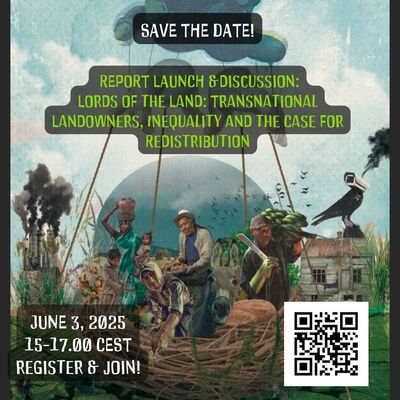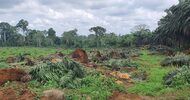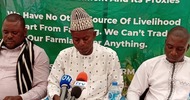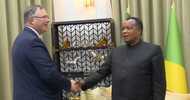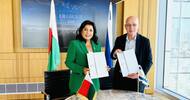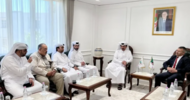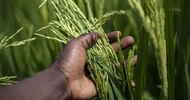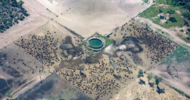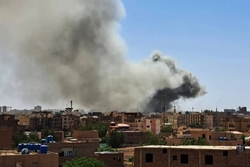
Smoke rises as clashes continue between the Sudanese Armed Forces and the paramilitary Rapid Support Forces (RSF), in Khartoum, Sudan on May 5, 2023 [Ahmed Satti/Anadolu Agency]
Sudan fighting threatens $50bn Gulf investments
The ongoing fighting between the Sudanese Army and the Rapid Support Forces threatens both Gulf food security and massive investment opportunities in the conflict area. Gulf states have invested tens of billions of dollars in the production of crops and animal fodder, in addition to livestock rearing, in order to secure a portion of their food supplies dependant on Sudan.
However, with Sudanese air space closed until the end of May, and the road from Khartoum to Port Sudan on the Red Sea coast dangerous, making exporting goods and produce extremely difficult, such investment is threatened. Moreover, the difficulties of transporting livestock to Saudi Arabia poses a serious threat to supplies as the Hajj — pilgrimage — season approaches.
The problems arising from the violence in Sudan coincide with a global rise in food prices, especially wheat and rice, due to the Russia-Ukraine war. The situation could push the Gulf countries to import grains, fodder and livestock from distant markets at higher prices than their counterparts in Sudan, which will raise the food bill and have the potential to threaten Gulf food security.
According to a report by TRENDS Research and Advisory Centre, if the Sudanese conflict continues, it could increase the food bill in the Gulf Cooperation Council (GCC) countries, where prices have doubled since the Russian invasion of Ukraine in February last year. Both countries are major grain exporters worldwide, so if Sudanese food exports to the Gulf are stopped or cut back further, the crisis could get worse.
Gulf countries have invested in agriculture in Sudan due to its abundance of fertile land, plentiful water — from the River Nile and rainwater — and diverse climate. The high cost of agriculture in the Gulf makes such investment worthwhile, not least because of the proximity of Sudan to the Gulf and the resultant lower transportation costs.
Over the past ten years, GCC countries have invested at least $53 billion in Sudanese agriculture. Saudi Arabia alone has invested $35.7bn, mainly supporting 250 agriculture projects. In November last year, Saudi Crown Prince Mohammed Bin Salman promised to provide $3bn to projects for the Sudan Investment Fund, followed by other instalments.
It is thus likely that Saudi Arabia and the Gulf countries will use their considerable financial influence to calm the situation in Sudan, protect their investments, and resume exports of agricultural produce and livestock.


